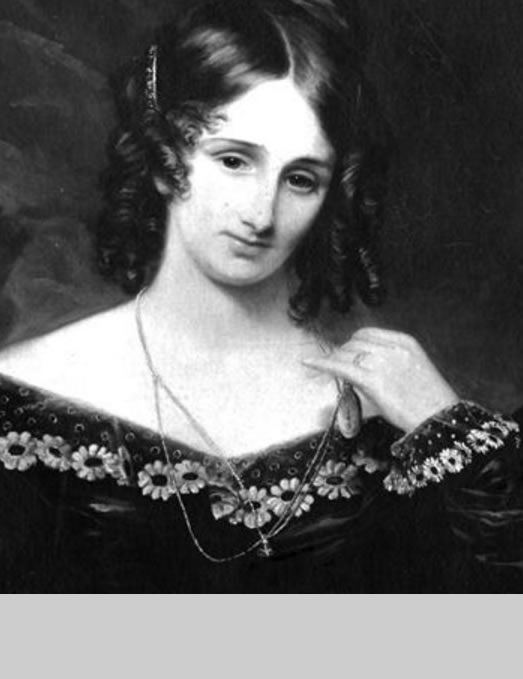
 Mary Wollstonecraft (1759-1797) is one of my favorite subjects because she was a paradox in the truest form – ‘practice what I preach, not what I do.’ She was the second of six children born in London. Her father was a violent drunk. Her mother was reportedly so submissive, Mary took on the stronger maternal role in… the family and would often sit outside her mother’s door to protect her from her father’s rages. Mary was alas born in the wrong century. As a youth, she imagined growing up and living with her best friend Fanny Blood, but as she grew older, with no formal education (not that an education would have made her independent because women couldn’t get good jobs), she took a job as a female companion to a grumpy woman that she would eventually leave. Mary, Fanny and her sisters started a school, but Fanny married and moved away. During that time, Mary convinced her sister Eliza to leave a difficult marriage, but because Eliza never remarried, she lived a life of poverty and extremely backbreaking work just to make a living.
Mary Wollstonecraft (1759-1797) is one of my favorite subjects because she was a paradox in the truest form – ‘practice what I preach, not what I do.’ She was the second of six children born in London. Her father was a violent drunk. Her mother was reportedly so submissive, Mary took on the stronger maternal role in… the family and would often sit outside her mother’s door to protect her from her father’s rages. Mary was alas born in the wrong century. As a youth, she imagined growing up and living with her best friend Fanny Blood, but as she grew older, with no formal education (not that an education would have made her independent because women couldn’t get good jobs), she took a job as a female companion to a grumpy woman that she would eventually leave. Mary, Fanny and her sisters started a school, but Fanny married and moved away. During that time, Mary convinced her sister Eliza to leave a difficult marriage, but because Eliza never remarried, she lived a life of poverty and extremely backbreaking work just to make a living.
Although she disliked the role women played in society as “second” to their husbands, Mary fell hard for American Adventurer Gilbert Imlay, became pregnant and gave birth to a young daughter. She is said to have generally loved and accepted the domestic lifestyle with Imlay, but he did not feel the same, eventually abandoning her and their child for another woman. Mary’s long, depressing letters to him were needy and begging. She attempted suicide by throwing herself in the Thames, leaving Imlay a note, “God bless you! May you never know by experience what you have made me endure. Should your sensibility ever awake, remorse will find its way to your heart; and, in the midst of business and sensual pleasure, I shall appear before you, the victim of your deviation from rectitude.” She survived two attempts.
Her greatest gift to women came in 1792, a year before she met Imlay when she published “A Vindication of the Rights of Woman”, where she suggests, “Instead of viewing women as ornaments to society or property to be traded in marriage, Wollstonecraft maintains that they are human beings deserving of the same fundamental rights as men.” source: Wikipedia

